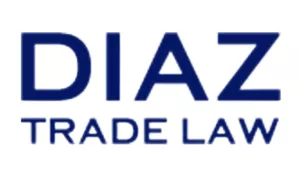In the last several weeks, the Trump Administration has issued dozens of executive orders impacting the trade community. The Orders impact tariffs, de minimis shipments, steel and aluminum imports, and potentially trade agreements with other countries.
New Tariffs on Mexico, Canada, and China
On February 1, 2025, President Trump first issued a fact sheet and thereafter signed three executive orders imposing new tariffs on imports from Canada, Mexico, and China:
- 25% tariff on imports from Canada
- 25% tariff on imports from Mexico
- 10% tariff on imports from China
The tariffs on imports from China went into effect February 4, 2025. The tariffs on imports from Canada and Mexico were initially set to take effect February 4, 2025, but were delayed by one month following commitments made by both countries to secure the border and stop the flow of drugs into the United States.
In a Truth Social post on February 27, President Trump confirmed that the tariffs on Canadian and Mexican goods will go into effect on March 4. He also announced that China will face an additional 10% tariff starting March 4.
On March 3, 2025, President Trump issued an Executive Order increasing tariffs on imports from China from 10% to 20%. The same day at a White House event, President Trump confirmed that the tariffs on Canada and Mexico will go into effect on March 4, 2025 as planned.
Energy resources from Canada will have a lower 10% tariff. The orders ended duty-free de minimis treatment under 19 U.S.C. 1321 for products from China subject to these additional tariffs. However, President Trump signed a subsequent Executive Order pausing the suspension of de minimis treatment. President Trump also signed two executive orders preserving de minimis treatment for Canada and Mexico until "adequate systems are in place" collect tariff revenue from these shipments.
Tariffs will be on top of any other in place (301, 232, ADD, etc.) The Federal Register Notice for Canada can be found here, the Federal Register Notice for Mexico can be found here. The Federal Register Notice for China can be found here.
Customs and Border Protection (CBP) issued guidance on the additional tariffs on imports from China, Canada, and Mexico. CBP also issued guidance on the processing of de minimis shipments, available here.
The Administration said the tariffs are aimed at curbing the flow of undocumented immigrants and drugs into the U.S. The White House Fact Sheet said the tariffs will hold Mexico, Canada, and China accountable to their promises of halting illegal immigration and stopping fentanyl and other drugs from flowing across the border. The tariffs will remain in effect "until the crisis is alleviated."
Steel and Aluminum Tariffs
On February 11, 2025, President Trump issued two Proclamations imposing enhanced import duties on steel and aluminum products under Section 232 of the Trade Expansion Act of 1962. The orders eliminate certain exemptions from the duties, expand their scope to cover additional products, and raise the duties on covered aluminum goods from 10% to 25%.
On February 18, 2025, two Federal Register Notices were published that included lists of "derivative" products subject to the 25% tariffs on steel and aluminum under Section 232. The Federal Register Notices, which include the specific HTS subheadings for the derivative products in Annex 1 are available here (steel) and here (aluminum). The Federal Register Notices implementing the enhanced import duties are available here (steel) and here (aluminum).
On March 3, 2025, the Department of Commerce released an unpublished Federal Register notice on the Implementation of Duties on Steel pursuant to Proclamation 10896, adjusting imports of steel into the United States, and an unpublished Federal Register notice on the Implementation of Duties on Aluminum pursuant to Proclamation 10895, adjusting imports of aluminum into the United States. Both are scheduled for official publication on March 6, 2025. The notices are available here (steel) and here (aluminum). In accordance with the notices, the additional 25% tariffs on the steel derivative products that fall under Chapter 73 that are listed in Annex 1 to the February 18 Federal Register Notice and on the aluminum derivative products that fall under Chapter 76 will of Annex 1 to the February 19 Federal Register Notice will begin March 12. Derivatives listed in these annexes that fall outside Chapters 73 and 76 will begin upon public notification by the Secretary of Commerce that adequate systems are in place to collect the additional tariffs.
Also as of March 12, 2025:
- Additional Section 232 tariffs of 25% will apply to covered aluminum and steel products from all countries. This means that countries that previously had certain exemptions from the 232 tariffs such as Argentina, Australia, Brazil, Canada, the EU, Japan, Mexico, South Korea, and the United Kingdom will also be subject to the 25% tariffs.
- Imports of derivative aluminum articles that contain "any amount of primary aluminum used in the manufacture of the derivative aluminum articles is smelted in Russia, or the derivative aluminum articles are cast in Russia," are subject to a duty of 200%.
- Newly added HTSUS codes in Chapters 73 and 76 will be subject to tariffs under subheadings 9903.85.07 and 9903.81.90.
-
- HTSUS Changes:
-
- 19 new subheadings for aluminum derivatives under Chapter 76.
- 157 new subheadings for steel derivatives under Chapter 73.
New subheadings will be used to differentiate between newly covered and previously covered products:
- 9903.85.02 – will be used for increased and expanded tariffs on aluminum, which are now set at 25% and will now also apply to Argentina, Australia, Canada, Mexico, the EU and the U.K., all of which previously had deals to avoid the tariff
- 9903.81.87 – will be used for Section 232 tariffs on iron and steel, including for goods that were previously subject to Section 232 steel tariffs (except for those on derivatives), as well as newly subject goods from Argentina, Australia, Brazil, Canada, Japan, Mexico, South Korea, the U.K., Ukraine and the EU that are no longer exempt or eligible for quota.
- 9903.85.04 – will be used for the previously existing list of aluminum derivatives
- 9903.81.89 – will be used for previously tariffed steel derivatives.
- 9903.81.88 & 9903.81.93 – will apply the tariffs on steel and steel derivatives admitted to a foreign-trade zone prior to March 12 under privileged foreign status.
- 9903.81.92 & 9903.85.09 – Newly tariffed derivatives exempt from tariffs because the steel was melted and poured in the U.S. or the aluminum was smelted and cast in the U.S.
USTR Requests Comments on Unfair Trade Practices and Non-Reciprocal Trade Arrangements
On February 25, 2025, the United States Trade Representative (USTR) published a Federal Register Notice seeking comments from the public to assist USTR in reviewing and identifying any unfair trade practices by other countries, and in initiating all necessary actions to investigate the harm to the United States from any non-reciprocal trade arrangements.
USTR was directed to initiate the unfair trade practices and non-reciprocal trade arrangements proceeding under the America First Trade Policy Presidential Memorandum and the Presidential Memorandum on Reciprocal Trade and Tariffs.
The Federal Register Notice invites any interested party to provide information relating to any unfair trade practice by a foreign country or economy or with respect to a non-reciprocal trade arrangement.
The notice stated that unfair trade practices may include a wide range of practices, such as policies, measures, or barriers that undermine or harm U.S. production or exports. Unfair practices may also include failure by a country to take action to address a non-market policy or practice in a way which harms the United States.
USTR is particularly interested in information related to the largest trading economies, such as G20 countries, as well as economies that have the largest trade deficits with the United States. Comments are due March 11, 2025.
232 Investigations
On February 25 2025, President Trump signed an executive order directing the Secretary of Commerce to initiate an investigation under Section 232 of the Trade Expansion Act of 1962 to determine whether imports of copper threaten to impair U.S. national security.
On March 1, 2025, President Trump signed an executive order directing the Secretary of Commerce to initiate an investigation under Section 232 of the Trade Expansion Act of 1962 to determine whether imports of timber, lumber and their derivative products threaten to impair U.S. national security.
Within 270 days of the issuance of the orders, the Secretary must submit the findings of the investigations along with recommendations on actions to mitigate such threats. Recommendations may include tariffs, export controls, or incentives to increase domestic production.
What Importers Should Do
While these tariff increases and changing trade policies will undoubtedly have a significant impact on any business involved in importing goods into the U.S., importers are not without options.
Now is the time importers should audit their operations and compliance program and ensure they are operating in the most efficient way possible. There are also several ways to legally minimize tariffs including:
- Duty Drawback
- Tariff Engineering
- Country of Origin Change
- First Sale
- Duty Deferral
- Negotiate DDP Incoterm
Importers exploring options to minimize tariff liability should always work with an expert to ensure they continue to meet all U.S. Customs regulations. Duty evasion is a serious crime and can result in serious monetary penalties or even prison time in the case of fraud.
The content of this article is intended to provide a general guide to the subject matter. Specialist advice should be sought about your specific circumstances.


